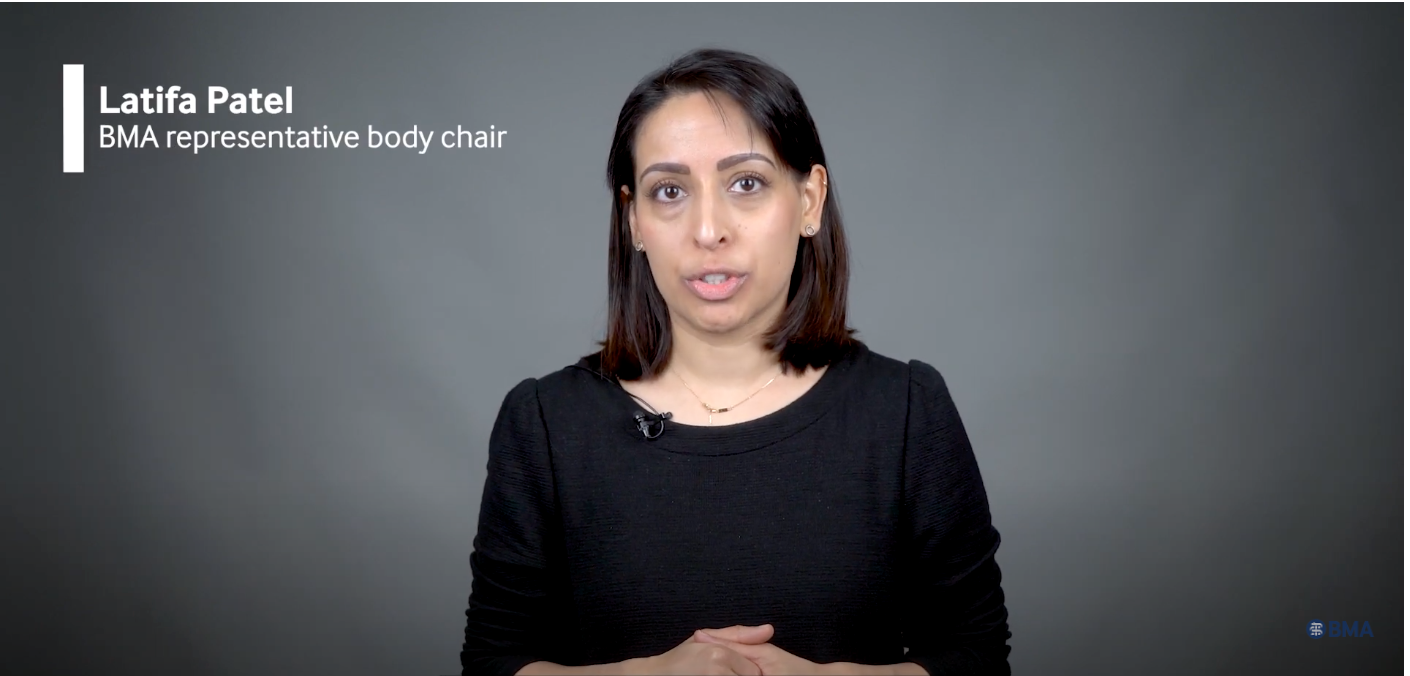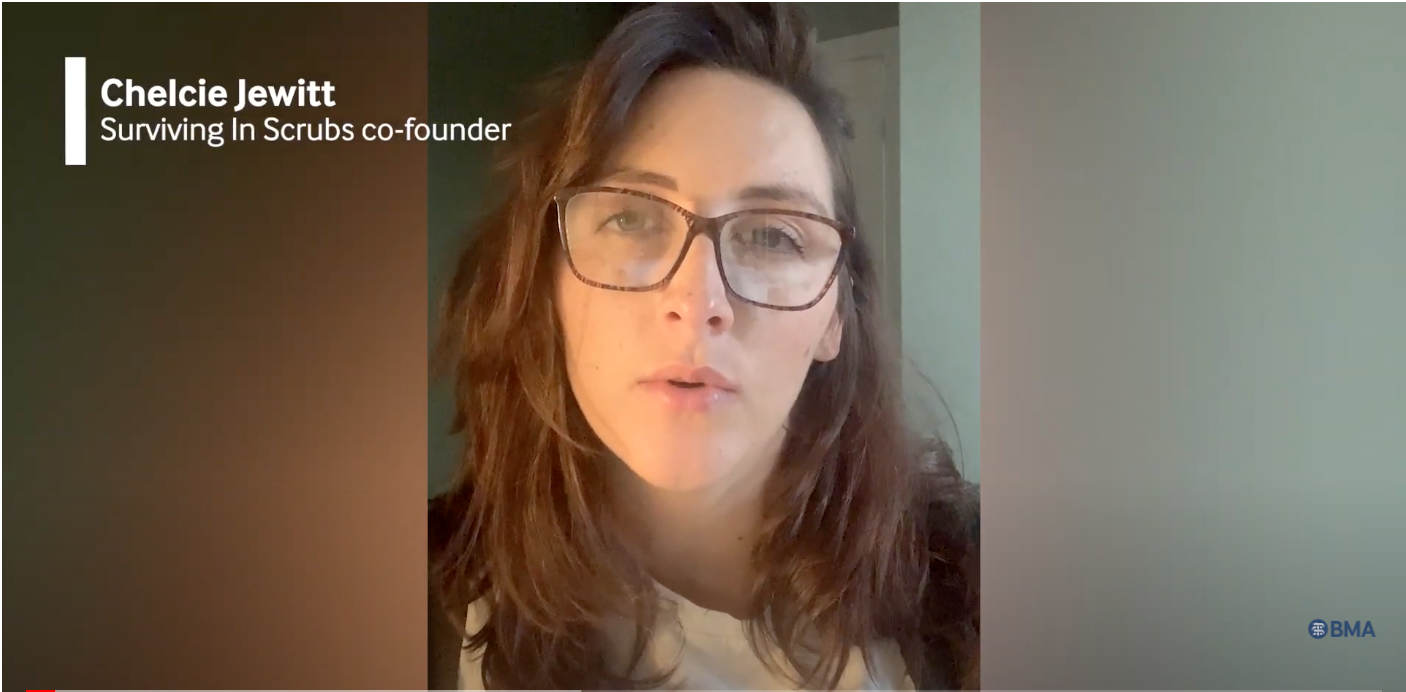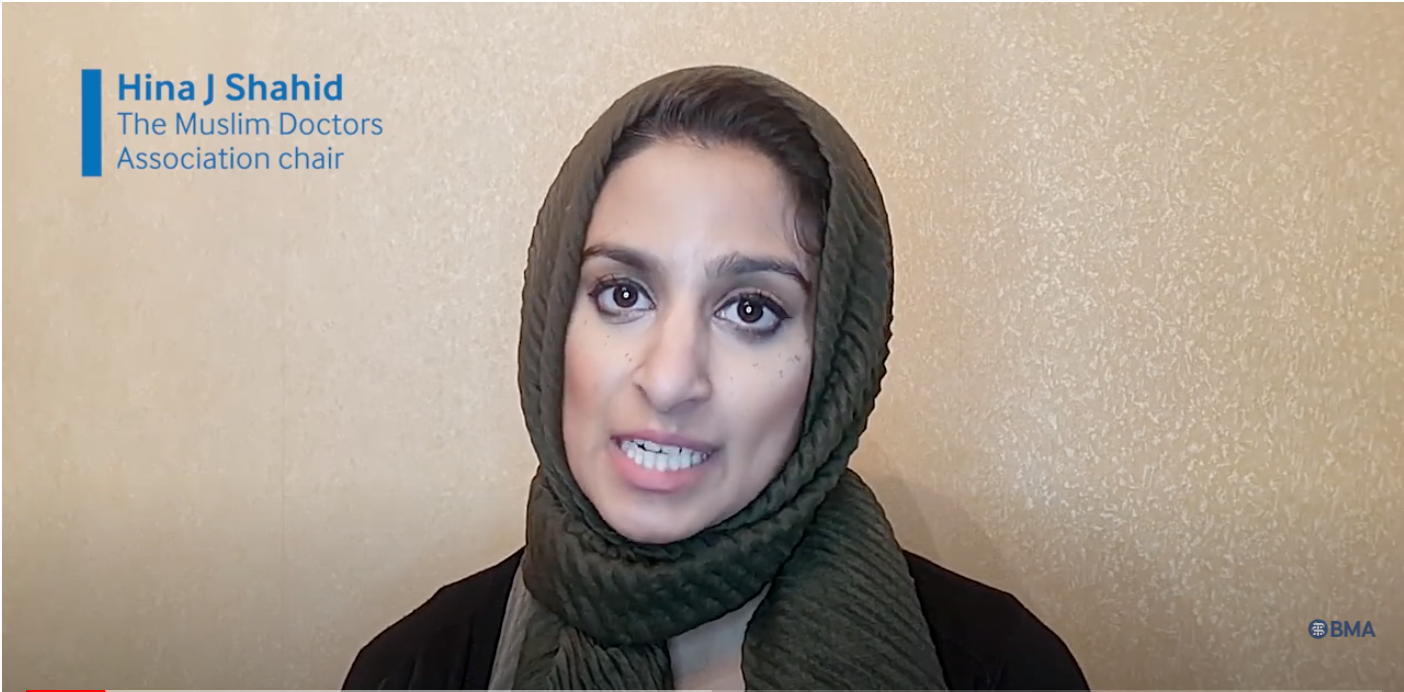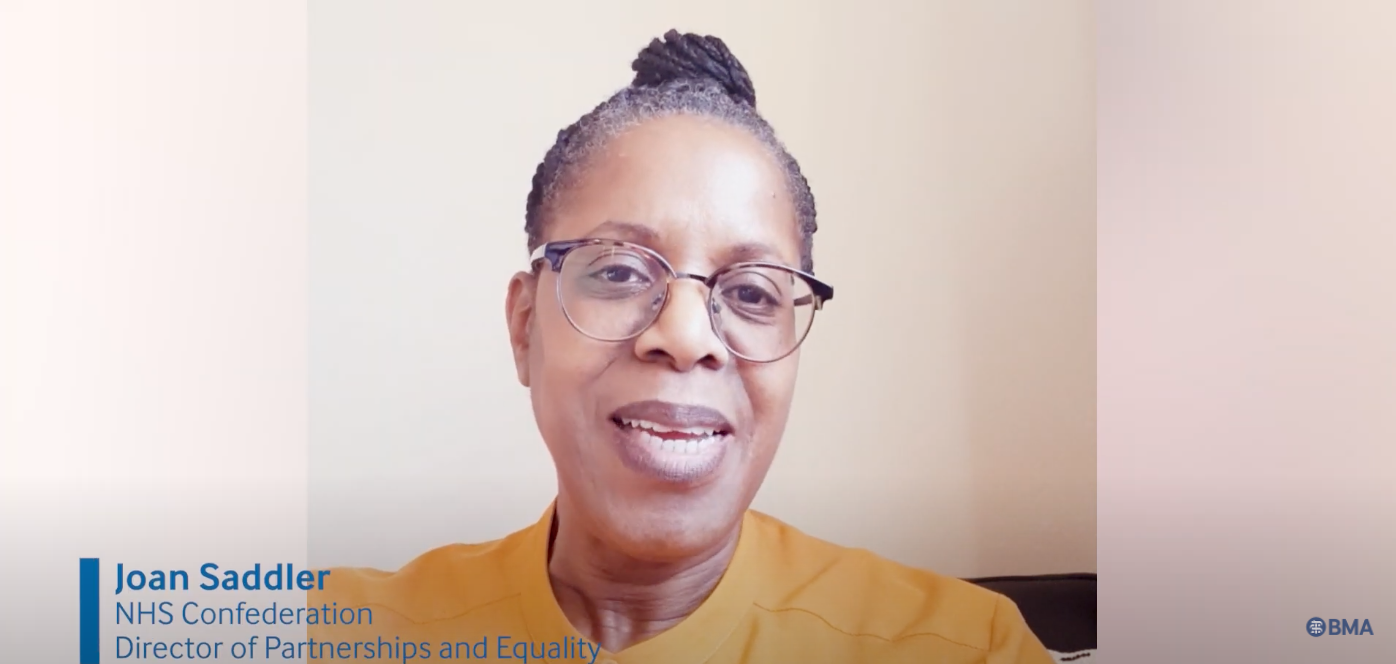About the pledge
The BMA’s Ending Sexism in Medicine Pledge will get us closer to a world where doctors and medical students can work in a safe environment free from discrimination, and where gender plays no role in career progression or how they are treated.
We want medicine to celebrate diversity, making all doctors and medical students feel valued, included and protected by their employers.
This is a joint pledge to unite medical organisations with impact on the working conditions of medical students and doctors so we can work collaboratively to address the cultural and structural factors that cause sexism.
Watch: Ending sexism in medicine pledge
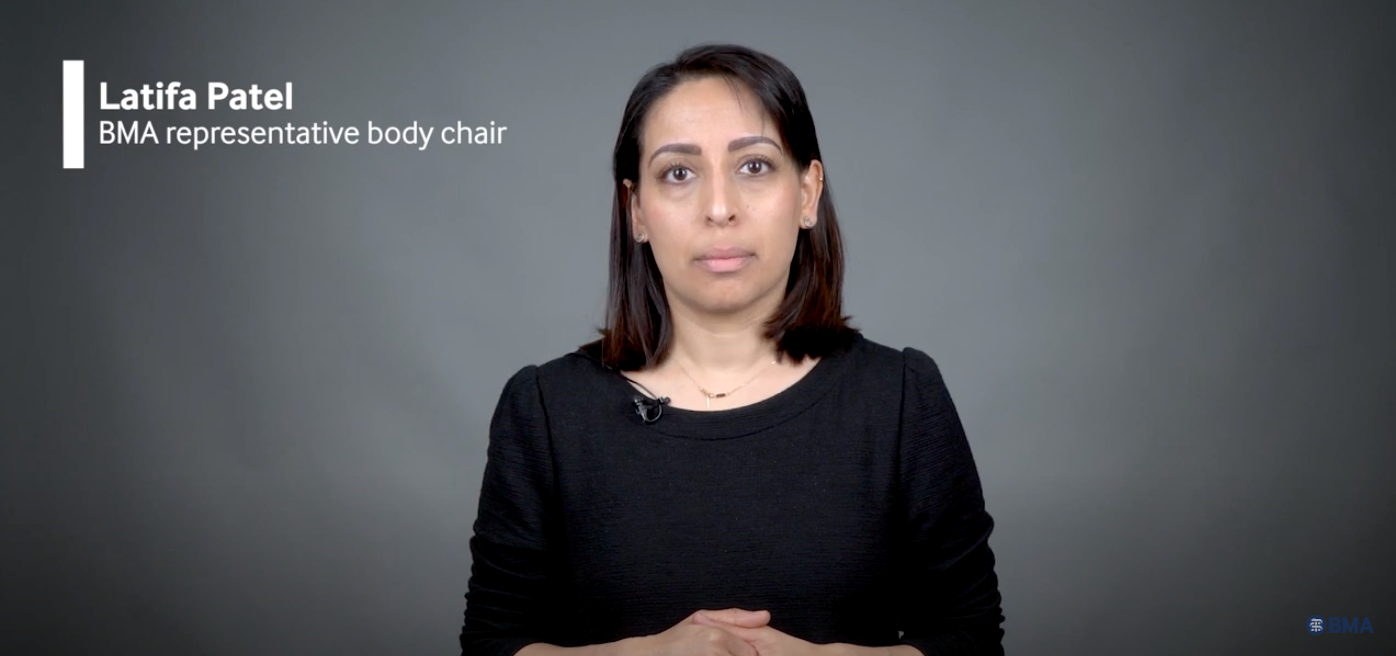
Who it's for
The pledge allows organisations and groups who share our commitments to work in partnership with the BMA to address sexism.
We want those with influence over the medical profession to collaborate and use our varied areas of impact to make meaningful changes.
Joint pledge on ending sexism in medicine
Sexism should never be tolerated, whether from individuals or ingrained in the policies and structures medical students doctors work within. All doctors and medical students should work in an environment free from discrimination where their gender plays no role in their career progression or how they are treated by colleagues and patients. The medical profession should celebrate diversity, making all doctors and medical students feel valued and included. Doctors and medical students must be given a safe environment to work in, where they are protected by their employers.
We want a medical profession that:
- promotes a culture of respect for the competency and contribution of all doctors and medical students without assumptions or stereotypes based on gender
- addresses the negative impact of gender stereotypes in medical education and career pathways
- ensures equal opportunities for doctors and medical students to pursue and thrive in the career path of their choice, without gender stereotypes playing a limiting factor in their career
- has systems to raise concerns that are transparent, fair, and accountable, that doctors and medical students have confidence in
- takes targeted and evidence based actions when addressing inequality. Recognising that women are more likely to experience sexism – while also acknowledging that other genders can be subject to disadvantage, for example, non-binary people being sexually harassed or men having less support to take parental leave due to gender stereotypes.
All actions we take to progress to a fairer medical profession must be intersectional to ensure we accurately reflect the experiences of all doctors and medical students, recognising that other characteristics such as a person’s gender identity, ethnicity, disability, faith or sexual orientation will impact their experiences of sexism.
How to sign up
If your organisation is interested in signing up, please email [email protected]
Watch: Ending sexism in medicine with the BMA pledge
Who has signed up
Thank you to the following organisations who have signed up to the pledge.
- Academy of Medical Royal Colleges
- Academy of Medical Royal Colleges and Faculties in Scotland (Scottish Academy)
- Ambrose Avenue Group Practice, branch of The Colte Partnership
- Ardleigh Surgery, branch of The Colte Partnership
- Association of Anaesthetists
- Aston Medical School
- British Association of Dermatologists
- British Association of Physicians of Indian Origin
- British Association of Physicians of Indian Origin Wales
- British Dental Association
- British Geriatrics Society
- British Islamic Medical Association
- British Medical Association
- British Orthopaedic Association
- British Orthopaedic Trainees Association
- British Society of Gastroenterology
- Bristol Medical School
- Colne Medical Centre, branch of The Colte Partnership
- Department of Health, Northern Ireland
- Doctors in Distress
- ENT UK
- Faculty of Forensic and Legal Medicine (Royal College of Physicians)
- Women in Intensive Care Medicine (Faculty of Intensive Care Medicine)
- Faculty of Pharmaceutical Medicine
- Faculty of Public Health
- Faculty of Sexual and Reproductive Health
- Faculty of Sports and Exercise Medicine
- George Eliot Hospital NHS Trust
- GLADD
- Highland LMC
- Hull York Medical School
- Keele University Medical School
- Kent and Medway Medical School
- King’s College Hospital NHS Foundation Trust
- King’s College London GKT School of Medical Education
- Leicester Medical School
- London School of Hygiene and Tropical Medicine
- Manchester University Foundation Trust
- Medical Schools Council
- Medical Women’s Federation
- Medical Women's Federation Wales
- Melanin Medics
- Mersea Island Medical Centre, branch of The Colte Partnership
- Mile Oak Medical Centre
- Muslim Doctors Association
- NHS Confederations Women in Leadership Network
- NHS Employers
- NHS Providers
- NHS Tayside
- Northern Care Alliance NHS Foundation Trust
- Northern Ireland Medical and Dental Training Agency
- Queen’s University Belfast, School of Medicine, Dentistry and Biomedical Science
- Regional Anaesthesia UK
- Riverside Health Centre, branch of The Colte Partnership
- Royal College of Anaesthetists
- Royal College of Emergency Medicine
- Royal College of Nursing Wales
- Royal College of Obstetrics and Gynaecology
- Royal College of Paediatrics and Child Health
- Royal College of Psychiatrists
- Royal College of Radiologists
- Royal College of Surgeons England
- Women in Surgery Forum (Royal College of Surgeons)
- Royal College of Physicians
- Royal College of Physicians of Edinburgh
- Royal Orthopaedic Hospital NHS Foundation Trust
- Rowhedge and University of Essex Medical Practice, branch of The Colte Partnership
- SOBA UK
- Society of British Neurological Surgeons
- South London and Maudsley NHS Foundation Trust
- St Andrews University School of Medicine
- St George’s University of London
- Surviving in Scrubs
- Swansea University
- Tackling Sexual and Gender Based Violence in Medical Education
- Tiptree Medical Centre, branch of The Colte Partnership
- University of Buckingham School of Medicine
- University of Exeter
- University Hospitals of Leicester
- University of Manchester School of Medical Sciences
- University of Plymouth, Peninsula Medical School
- University of Sheffield, Faculty of Medicine, Dentistry and Health
- University of Sunderland Medical School
- Walton Medical Centre, branch of The Colte Partnership
- Western Health and Social Care Trust
- West Herts Teaching Hospitals NHS Trust
- Wivenhoe Medical Centre, branch of The Colte Partnership
-
Women in Medicine Carers Network
Our goals
We believe that working in partnership towards these goals will help us in achieving this pledge. Some of these goals are specific to women, who disproportionately experience gender discrimination; this includes all doctors and medical students who identify as women.
Identify and address the structurally discriminatory policies that cause career progression to be different for men and women.
Maximise transparency and increase access, equality and equity in recruitment processes, training, examinations, and career and pay progression opportunities. This includes ensuring that any panels or decision-making bodies are representative of the workforce and population.
Implement robust sexual harassment policies and codes of conduct that protect doctors and medical students from sexual harassment from colleagues and patients.
Formal and informal reporting channels must be well-known to doctors and medical students, with confidence that the process will not be detrimental on careers.
Implement success measures and metrics to monitor and drive progress. Encourage people and organisations to address sexism and reward those who take action to improve gender diversity, for example, through education on the impact of sexism on recruitment, retention and wellbeing.
All pregnant and breastfeeding doctors and medical students should have access to high-quality risk assessment and be encouraged to prioritise their health and safety at work. In the unfortunate event of a pregnancy loss, they should receive compassionate support from their workplace or university.
Equal access to development opportunities, career progression and fair working practices for doctors and medical students with caring responsibilities and those who work flexibly.
End the assumption that certain specialties are more suited to certain doctors based on their gender and the wider stereotype that being a doctor is a male role.
Ensure that women are represented and recognised in decision-making, leadership teams and events. Particularly those from communities that are historically underrepresented.
Senior doctors to call out sexism and be responsible and accountable for addressing their own bias.
Workplaces and medical schools should address the historic lack of recognition and support for women’s health. Policies should be put in place to ensure that workplaces and medical schools are inclusive of women’s health and wellbeing. For example, implementing policies on, menstruation, menopause, and domestic violence.
We pledge to end sexism in medicine
BMA representatives explain the importance of the pledge and voice their own commitments to ending sexism in medicine.
